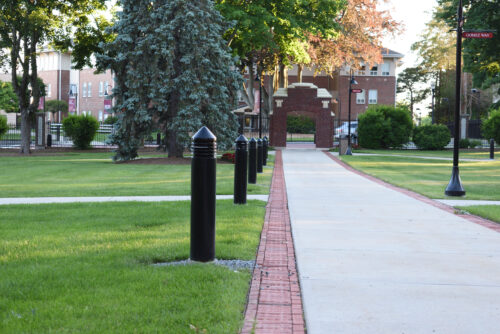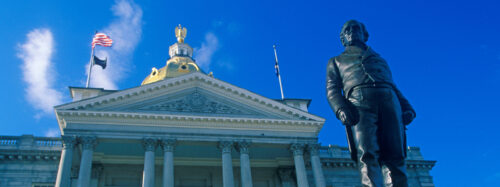Donors should be afforded the chance to donate anonymously, but that right is under fire from both sides of the political aisle.
Salesforce CEO Marc Benioff should be celebrated for his generous donation to numerous Hawaii hospitals, especially in the wake of the Maui wildfires that killed nearly 100 people and left 7,000 people homeless. His suggestion regarding anonymity in giving, though, concerns us.
As reported by the Wall Street Journal, the tech executive for years has owned property on the Big Island and says that local pressure to reveal information about charitable gifts and real estate deals ultimately persuaded him to disclose more about his charitable investments in the state.
“Philanthropy and real estate purchases can’t be done anonymously anymore,” the Journal writes, paraphrasing Benioff’s comments. While it’s a giver’s prerogative to decide whether to disclose their identity, giving can—and in some cases, should—be done anonymously.
A critical component of free speech is the right of a person to give their hard-earned dollars to an organization without fear of reprisal. One of the benefits of giving through a donor-advised fund, such as DonorsTrust, is that the fund can act as a shield against verbal and physical harassment.
This is not without precedent. During the Civil Rights Movement, officials in Alabama tried to expose members of the NAACP, a group dedicated to advancing civil liberties for black Americans. Fearing for its supporters’ safety, the NAACP fought the demand.
The Supreme Court then ruled in NAACP v. Alabama that the state’s disclosure demands were unconstitutional and violated free-speech rights. That unanimous 1958 decision remains a definitive victory for privacy as it relates to free speech.
Using anonymity is an appropriate strategy when mapping out one’s personal charitable giving. For some, it’s also a deeply held religious conviction. Some people's faith requires them to be modest when it comes to speaking about their charitable giving.
In a recent opinion piece, the author endorses the call to “broadcast your bling,” but he also gives voice to Jewish philosopher Maimonides, who basically says “modest is hottest” when it comes to giving.
Increasingly, though, prying lawmakers want to unmask givers whose right it is to remain anonymous. From Sens. Sheldon Whitehouse (D-R.I.) to Bernie Sanders (I-Vermont), there is pressure on donors to pick a camp—and not the “modest is hottest” philanthropic strategy.
Throughout the country, People United for Privacy estimates lawmakers in 31 states—Hawaii included—will try to advance legislation that compromises a giver’s privacy rights—something that would chill speech and slow giving. This is not the mark of a tolerant, plural society.
It’s also being done by both sides of the political aisle. Of the 31 states threatening free speech in giving, 14 have Democrat-controlled legislatures and 12 Republican-controlled. This cross-partisan trend should concern anyone who cares about civil liberties.
As the report reads, "[A]s both parties increasingly view donor disclosure mandates as a tool for ruining their opposition and settling political scores, the threat of anti-privacy proposals passing in states across the country is high.”
Indeed, on a recent episode of the DonorsTrust Giving Ventures podcast, Christie Herrera—who is president and CEO of Washington, D.C.-based Philanthropy Roundtable—says that some of the greatest threats to giving are from otherwise conservative-leaning lawmakers.
As she says, “All of the threats to philanthropy and charitable giving from the right are very short-sighted and they will be the most harmful to our causes—to liberty-oriented groups—not to mention all of the people who rely on normal, everyday charities for the things that they care about.”
Charitable givers, however they choose to approach anonymous giving, should never be marginalized or shamed for their actions. Private giving is a legitimate choice, however frustrating that may be to other donors or to politicians.
This article was authored by both Lawson Bader, president and CEO of DonorsTrust, and Heather Lauer, CEO of People United for Privacy.






